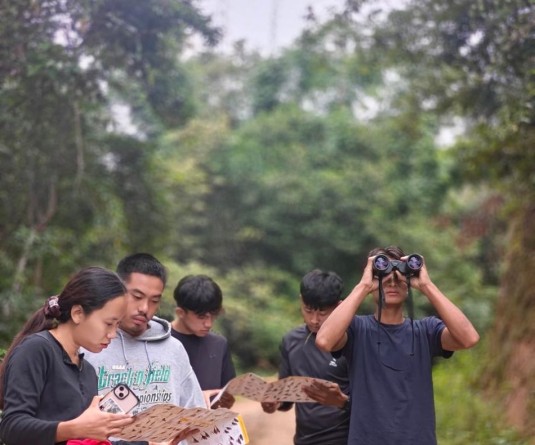
Crimes against women- encompasses a wide range of human rights violations, including sexual abuse of children, rape, domestic violence, sexual assault and harassment, abduction, trafficking of women and girls and several harmful traditional practices.
Statistics from National Crime Records Bureau’s (NCRB) Crime in India 2012 report reveals that Nagaland had the lowest rate of crime against women in the region - 1.9 per cent. The NCRB registered only 38 cases of crime against women in 2011 in Nagaland.
But there no room for complacency because the data itself may be misleading since not all crimes are reported and registered due to one or the other reason. Hence, one must not assume that the state is safe for women because every now and then shocking stories of rape, sexual assault, child molestation, abduction, etc. is taking place rampantly. It is a shame that Nagaland is declared as Christian state nevertheless, society has been contaminated with all sorts of social evils and accused outside forces which influences our society such as media, TV, internet, etc.
Across the world today crimes against women such as rape, sexual assault child molestation, abductions, etc. has become a serious issue and is hotly debated everywhere, in public institutions, NGOs, organizations, groups, etc. to curb this menace. Hence, it is a major concern for every civilized individual to contribute something on their parts to eradicate such evils to secure the future of women in our society. Your children and loved ones are no more safe in our society today.
In this article, I am presenting you my view points on
1. How gender discrimination in society promotes social evils and
2. Why crimes against women continued to persist in our society despite the existence of several laws and authority to safeguard them.
From the perspective of Naga society the root cause of violence and crimes against women are directly or indirectly related to our cultural practice. We follows patriarchal family system where male is the dominant head of the family. Even within a family itself, Gender disparity is systematically practiced and is strongly legalized by traditions. It is expected that female must serve male in lowly manner, and must not rebel against his command. Women have no rights absolutely in all walks of life, be it in decision making, in voicing opinion or inheriting property. The peoples’ attitudes and mindsets have been deeply rooted by customs. It is not unreasonable that women are always treated unequally in the context of Naga society. Through this discriminatory practice, female status has been reduced into a mere commodity like having little essentialities or no values at all. In this way, women have become so vulnerable to all kinds of social evils.
Even today upholding our medieval culture, we are not bothered whether we are violating Human Rights or violating the principles of equality as mandated by the constitution of the country. Here emerge the paradox of Art 371 A, often used by supporters of orthodox customs to justify gender discrimination claiming that Nagaland is governed by Art 371 A.
Article 371A, which says: (1) Notwithstanding anything in this Constitution,— (a) no Act of Parliament in respect of— (i) religious or social practices of the Nagas, (ii) Naga customary law and procedure, (iii) administration of civil and criminal justice involving decisions according to Naga customary law, (iv) ownership and transfer of land and its resources, shall apply to the State of Nagaland unless the Legislative Assembly of Nagaland by a resolution so decides;
It is the statement ‘According to Naga customary law” which came as a stumbling block for achieving gender equality in our society. One cannot fully understand the rationality behind this customary legality, since it varies greatly even among the Naga tribes. Moreover, this law is so flexible that very often the verdict comes out in favour of witty persons.
Hence, we need to introspect our customs and cultural practices even more deeply. Our customary practice has a huge impact on the people’s life and the resultant consequences are even more bitter and inhumane. The laws of the land, its customs and traditions need modification if not wholesome change, wherever necessary and streamline our customary laws with other nations who adopt equality of right.
Article 371A- promotes discrimination between males and females and is inconsistent with Fundamental rights of the Indian constitution. It also violates the principles of Human Rights given by the United Nation.
The State Legislature must set up a committee, consisting of eminent jurists such as Judges of High Court and Supreme Court (retired/unretired) who have experiences in legal affairs to review the amend ability of Art 371, using any type of doctrine given in the constitution. Only through legislative measures- by empowering women and giving them more rights, a women respectable society where both gender respect each other right will ultimately bring a harmonious society.




